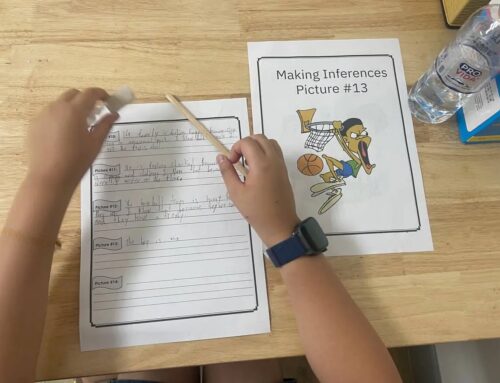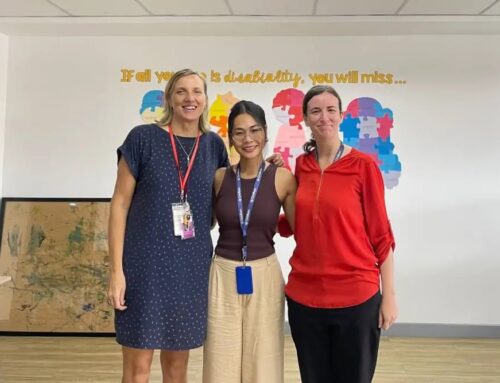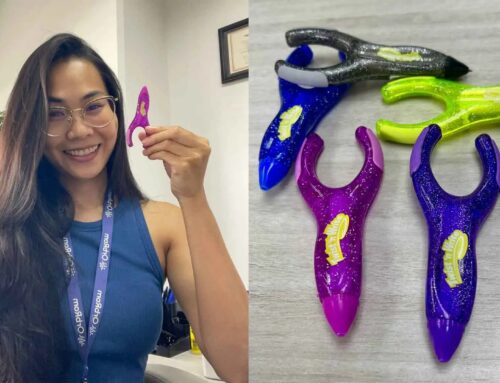[ad_1]
Autism Spectrum Disorder (ASD) is a neurodevelopmental condition that affects communication, behavior, and social interactions. One of the most common questions parents ask—especially after early diagnosis—is: Can autism be outgrown? This blog explores that question with clarity, compassion, and science-backed insight. For families in Phnom Penh seeking guidance, support, and practical solutions, understanding the nature of autism is key to empowering a child’s long-term development.
Can Autism Be Outgrown?
The short answer is: No, autism cannot be outgrown in the traditional sense. Autism is a lifelong condition rooted in brain development. However, that doesn’t mean a child with autism won’t grow, develop, and thrive. Many individuals with autism can make significant progress through early intervention, therapy, education, and family support.
Children diagnosed on the spectrum may, over time, develop better communication, social, and self-regulation skills. With the right support, some may no longer meet the full diagnostic criteria for autism. But that doesn’t mean the autism is “gone”—rather, the individual has adapted, compensated, and matured.
Why the Confusion Around “Outgrowing” Autism?
The misconception that autism can be outgrown often comes from cases where a child shows marked improvement after therapy and structured intervention. Parents might notice that their child now makes eye contact, responds to social cues, and participates in mainstream classrooms. These improvements are real—and something to celebrate—but they are not signs that autism has disappeared.
Children who appear to “lose” their diagnosis usually continue to face challenges in subtle ways. They might still struggle with sensory sensitivities, anxiety, executive functioning, or social nuances. These needs don’t vanish; they just evolve.
Early Intervention Makes a Lifelong Difference
While autism isn’t something to “cure” or “outgrow,” early intervention can change outcomes dramatically. At OrbRom Center in Phnom Penh, our team offers Special Needs Intensive Intervention that is tailored to each child’s unique strengths and needs. Through structured routines, individualized teaching plans, and consistent therapeutic support, children gain the tools they need to:
-
Improve communication
-
Increase attention and emotional regulation
-
Learn social and play skills
-
Manage sensory challenges
Our approach is rooted in evidence-based practices. We believe that with the right support, children on the autism spectrum can achieve more than many expect.
Autism is Not a Limitation—It’s a Different Path
It’s important to shift the focus away from “fixing” or “outgrowing” autism and instead concentrate on understanding and empowering neurodiverse children. Children with autism often think and learn differently. Some excel in logical thinking, memorization, or creativity. When supported appropriately, these strengths can become powerful assets.
At OrbRom Center, we see potential in every child. Our therapists collaborate with parents, educators, and specialists to build environments that support success—not by erasing autism, but by embracing it with care and structure.
Real-Life Growth Stories
In Phnom Penh and beyond, we’ve seen children who started with few words later give classroom presentations. We’ve worked with children who once avoided peer interaction now playing cooperative games. These transformations don’t happen overnight—but they happen through commitment, therapy, and a loving support system.
Parents often report that the turning point was not the hope of “outgrowing” autism, but the realization that their child simply needed a different kind of support.
The Role of Long-Term Support
Even as children grow into adolescents or adults, many continue to benefit from periodic therapy, coaching, or accommodations in school and the workplace. Autism is not a static diagnosis; it’s a spectrum. Needs change over time, and support must change with it.
That’s why ongoing assessment is crucial. Whether you’re just starting to explore your child’s needs or reassessing progress, understanding current strengths and challenges helps shape the next phase of support. Our team at OrbRom provides comprehensive assessments to guide families forward.
Conclusion: Growth is Possible—But “Outgrowing” Isn’t the Goal
So, can autism be outgrown? No—but that’s not the right question. The better question is: What supports will help this child grow into their full potential? In Phnom Penh, parents don’t have to navigate this journey alone. With services like individualized intervention and ongoing assessments at OrbRom Center, your child’s future is filled with possibilities—not limits.
[ad_2]
Source link






